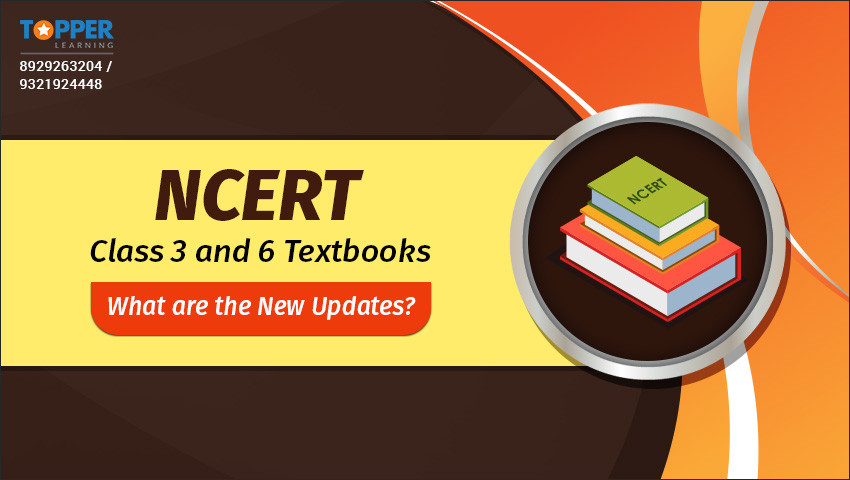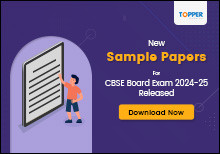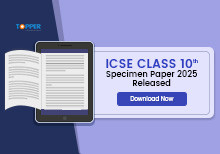NCERT Class 3 and 6 Textbooks: What are the New Updates?

Learn about the new updates of class 3 and 6 NCERT textbooks. Acknowledge the difference between the older and newer class 3 and 6 NCERT textbooks.
By 31st Jul, 2024 | 04:10 pm
ShareThe National Council of Educational Research and Training has released new textbooks and syllabi only for classes 3rd and 6th. No changes will be made to the textbooks and curriculum for other classes for the 2024–25 academic year, according to the Central Board of Secondary Education.
In the transition to the new syllabus, NCERT has brought forward the bridge program for all the schools affiliated with the CBSE, NVS and KVS. According to NCERT, it will facilitate a smooth transition to updated pedagogical practices and study areas aligned with the national curriculum for students. The council has also prepared certain guidelines. Learn about what’s new in these updates below!
Class 3 NCERT Textbooks Update for Session 2024-25
NCERT Class 3 textbooks are created by some faculty members who have years of experience, making these books extremely helpful and fun-filled for students. Some of the major updates made in the class 3rd NCERT textbooks for the session 2024-25 are as follows:
English
The older English book for class 3, Marigold, has now been replaced with Santoor, including a total of 12 chapters.
Maths
The old NCERT maths book called Math Magic has been revised to the new version Mela, including 14 chapters.
Hindi
Veena is the latest NCERT Hindi version of class 3rd, providing a basic understanding of Hindi and grammar. The book includes 18 chapters.
Class 6 NCERT Textbooks Update for Session 2024-25
NCERT Class 6 textbooks are created by highly intelligent personalities of our country, making these books extremely useful for students. Some of the major updates made in the class 6th NCERT textbooks for the session 2024-25 are as follows:
Maths
The older version of the Maths NCERT syllabus included a total of 14 chapters. However, the newly updated maths NCERT textbooks include only 12 chapters.
Update: The two chapters, Symmetry and Practical Geometry, have not been included in the updated maths syllabus.
Science
The science syllabus has been revised from 16 chapters in the older version to 11 chapters in the updated one.
Update: The following chapters have been excluded from the updated class 6th Science NCERT version:
- Fibre to Fabric
- Sorting Materials into Groups
- Separation of Substances
- Changes Around Us
- Garbage in, garbage out
Social Science
The updated class 6th social science NCERT content has been narrowed down to including three books of civics, history, and geography in a single book.
Update: Following is the revised syllabus for the 3 subjects:
Civics
The civics chapter Key Elements of a Democratic Government has been removed from the updated civics syllabus in the social science book. Chapters have been decreased from 9 to 8.
History
The chapters Trail of the Earliest People, Ashoka, the Emperor Who Gave Up War, Thriving Towns, and Traders, Vital Villages, Kings and Pilgrims have been replaced with From a Kingdom to an Empire and Villages, Towns and Trade. Hence, chapters have been reduced from 12 to 10.
Geography
The chapters Major Landforms of the Earth and India: Climate, Vegetation and Wildlife have been removed from the new syllabus, resulting in only 6 chapters out of 8 in the new social science textbook.
Why and How did NCERT Align the New Updates with the NEP 2020?
The recent curriculum changes announced by NCERT reflect the NEP's vision across all grade levels. These changes include:
New Curriculum and Textbooks for Grades 3 and 6
In the upcoming academic year, NCERT will introduce new textbooks for grades 3 and 6, fully aligned with the NEP.
Recommendations from the NEP for Every Grade Level
Schools are encouraged to follow the National Curriculum Framework (NCF), incorporating NEP suggestions such as art-integrated education, multilingualism, and experiential learning wherever feasible. This applies to all grades, even those without updated curricula at this time.
What is Experiential Learning, and How do NCERT Class 3 and 6 Textbook Updates Promote it?
The NEP 2020 emphasises switching from rote memorization towards a more holistic approach that aims at the development of learners.
Experiential Learning is the new curriculum that focuses on experiments, project-based learning, and real-world applications across various subjects. This approach encourages students to actively engage with the content, building deeper connections and a better understanding of the material.
NCERT's new curriculum includes the following elements:
Integration of Arts and Skills
The curriculum includes music, physical education, theatre, and the arts with major subjects. This multidisciplinary approach promotes creativity, problem-solving, and critical thinking.
Emphasis on Life Skills
The curriculum allocates specific time to develop essential life skills, including financial literacy, critical thinking, and communication, which are crucial for academic and future success.
Multilingualism
The NEP promotes learning in multiple languages to boost communication skills and cultural awareness. This may involve introducing a third language or strengthening existing language programs.
Reforms in Assessment
The new update will likely include ongoing assessments, such as presentations, projects, and student self-evaluations, to provide a clearer picture of a student’s development and understanding.
New Learning Approaches for New NCERT Textbook Updates with TopperLearning
With the new updates, NCERT focuses on nurturing the students not only as learners but as creators, thinkers and problem-solvers, promoting a wider learning approach that prepares students for future opportunities and challenges.
New updates call for new learning approaches, and who else can be a better guide than TopperLearning for your students? This online learning platform provides sample papers, learning videos, and revision notes, helping students have a fun learning experience.
More from Education
Important Resources
- Education Franchisee opportunity
- NCERT Solution
- CBSE Class 9 Mathematics
- NCERT Solutions for class 10 Science
- Sample Papers
- CBSE Class 9 Science
- NCERT Solutions for class 10 Maths
- Revision Notes
- CBSE Class 10 Hindi
- CBSE Class 10 English
- CBSE Class 10 English
- CBSE Class 10 Social Studies
- CBSE Class 10 Science
- CBSE Class 10 Mathematics
- Career In Science After 10
- Career In Commerce After 10
- Career In Humanities/Arts After 10
- NCERT Solutions for Class 10
- NCERT Solutions for Class 11
- Business Studies Class 12 CBSE project




